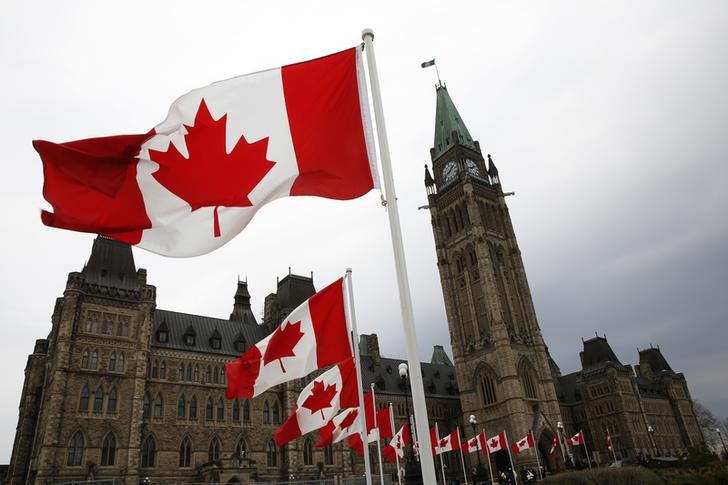By Steve Scherer
OTTAWA, Oct 15 (Reuters) - Canada's federal elections watchdog said on Tuesday more Canadians voted early this year compared with four years ago, while on the campaign trail party leaders increasingly discussed the possibility that no party will win a majority in parliament.
In the four days ending on Monday, voters were allowed to cast an advance ballot. During the first two days, some 2 million people voted, an increase of 25% from 2015, Elections Canada said. Election day is Oct. 21.
"The trend has been that more people take advantage of the option of advanced polling ... because they like the convenience of it," said Nick Gamache, director of media relations at Elections Canada.
Though overall numbers for all four days have yet to be tallied, Gamache said it was a "safe assumption" that there was an overall increase in advance voting versus 2015.
Advance voting "has been trending up in every federal election," Ipsos pollster Darrell Bricker said on Twitter. It "doesn't always mean overall turnout will be higher," he said.
Polls show the two biggest parties, Prime Minister Justin Trudeau's Liberals and Andrew Scheer's Conservatives, are tied nationally though neither is positioned to win an outright majority in parliament, meaning they may need a partner to govern.
The left-leaning New Democrats (NDP) gained 5 percentage points to 20% over the past week and is in third place nationally, according to an Ipsos poll published on Tuesday, a surge that could hand NDP leader Jagmeet Singh the balance of power.
All the candidates were campaigning on Tuesday after many took a short break for the Thanksgiving holiday.
Speaking in Fredericton, New Brunswick, Trudeau urged voters to choose Liberals not only over Conservatives, but also over the rival, left-leaning NDP and the Green Party.
"If you want progressive action, you need a progressive government, not a progressive opposition," Trudeau said.
Singh, who himself cast an early ballot over the weekend, said on Sunday that he was open to working with other parties to keep the Conservatives out of power, but on Monday adjusted his message to say his goal was to win, not enter a coalition.
"It's quite clear the NDP would join a high-deficit, high- tax government, and it's quite clear Justin Trudeau would pay any price to stay in power," Scheer said in Quai Saint-Andre, Quebec.
Though leaders are speaking to a smaller audience after millions cast early ballots, one exception may be Manitoba, which was struck by a major storm packing snow and toppling trees over the weekend.
Elections Canada is looking into ways to help those in the areas hardest hit to vote on election day, Gamache said.
"We're in evaluation mode. We're already looking at adding resources on the ground so that people can cast a ballot," he said. "If there's an influx (on election day), we want people not to have longer lines."
